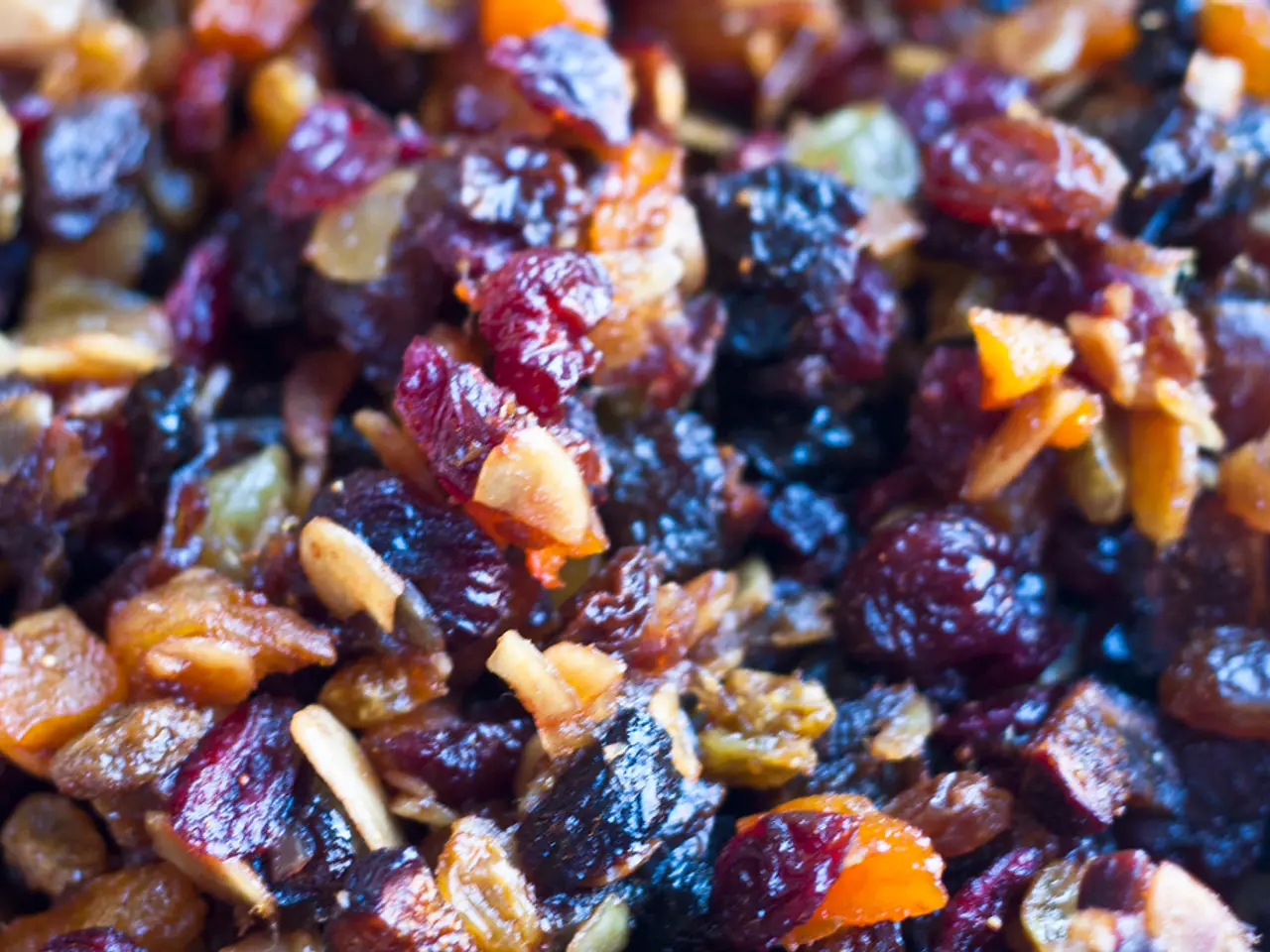Advantages of Nutritious Eating for Kids Struggling with ADHD
Children with Attention Deficit Hyperactivity Disorder (ADHD) may face nutrient deficiencies, particularly in magnesium, zinc, iron, and omega-3 fatty acids, which are crucial for brain function [1]. A well-balanced diet can help address these deficiencies and potentially improve ADHD symptoms.
Research shows that children with ADHD tend to have lower iron levels compared to healthy children. Iron supplementation has been found to improve both iron levels and ADHD symptoms in children [2]. The study "Children's attention-deficit/hyperactivity disorder symptoms predict lower diet quality but not vice versa" (Mian et al., 2019) investigates the relationship between ADHD symptoms and diet quality.
Omega-3 fatty acids, linked to improving ADHD symptoms, can be found in fatty fish such as salmon, sardines, and mackerel, as well as in nuts and seeds like walnuts, chia seeds, and flaxseeds [3]. Zinc, another essential nutrient, can be sourced from oysters, beef, chicken, turkey, pumpkin seeds, and fortified cereals [2][4].
Magnesium, vital for brain function, can be found in nuts and seeds like almonds, pumpkin seeds, and sesame seeds, as well as in leafy greens such as spinach and kale [2][4]. B-vitamins, which can alleviate symptoms such as fatigue, irritability, anxiety, and decreased alertness, can be sourced from whole grains, leafy greens, nuts and seeds, fatty fish, beans, and legumes [3].
A diet rich in fruits, vegetables, and healthy proteins (lean meat, fish/seafood, eggs) can provide higher amounts of magnesium, zinc, iron, B-vitamins, and omega-3 fatty acids [6]. The U.S. Department of Agriculture and U.S. Department of Health and Human Services recommend a diet according to the Dietary Guidelines for Americans for overall health.
The MADDY Study found a negative correlation between fruit and vegetable intake and the severity of inattention in a pediatric population with ADHD symptoms [7]. The study "Fruit and vegetable intake is inversely associated with severity of inattention in a pediatric population with ADHD symptoms: the MADDY Study" (Robinette et al., 2022) examines this relationship further.
The potential benefits of nutritional supplements for ADHD are discussed in the study "Nutritional supplements for the treatment of ADHD" (Bloch & Mulqueen, 2014) [8]. However, it's important to note that a balanced diet should be the primary source of these essential nutrients.
ADHD is a common brain-based disorder that affects nearly one in 10 children in the United States [9]. By incorporating a variety of nutrient-dense foods into their diets and reducing consumption of nutrient-poor foods and snacks, children can avoid nutrient deficiencies and develop healthier habits.
In addition to the foods mentioned, diets such as the Mediterranean diet and the dietary approaches to stop hypertension (DASH) diet, as well as eating according to the recommendations from the Dietary Guidelines for Americans, are examples of healthy diets that can help improve overall health and potentially alleviate ADHD symptoms.
- Research suggests that children with ADHD may have lower levels of iron compared to healthy children, and iron supplementation can help improve both iron levels and ADHD symptoms.
- Omega-3 fatty acids, beneficial for ADHD symptoms, can be found in food sources like salmon, sardines, mackerel, walnuts, chia seeds, and flaxseeds.
- Zinc, another essential nutrient for ADHD management, can be sourced from oysters, beef, chicken, turkey, pumpkin seeds, and fortified cereals.
- A diet rich in fruits, vegetables, and healthy proteins (lean meat, fish/seafood, eggs) can provide higher amounts of magnesium, zinc, iron, B-vitamins, and omega-3 fatty acids, which are crucial for brain function and potentially alleviating ADHD symptoms. These eating habits can help children avoid nutrient deficiencies and develop healthier habits overall.




